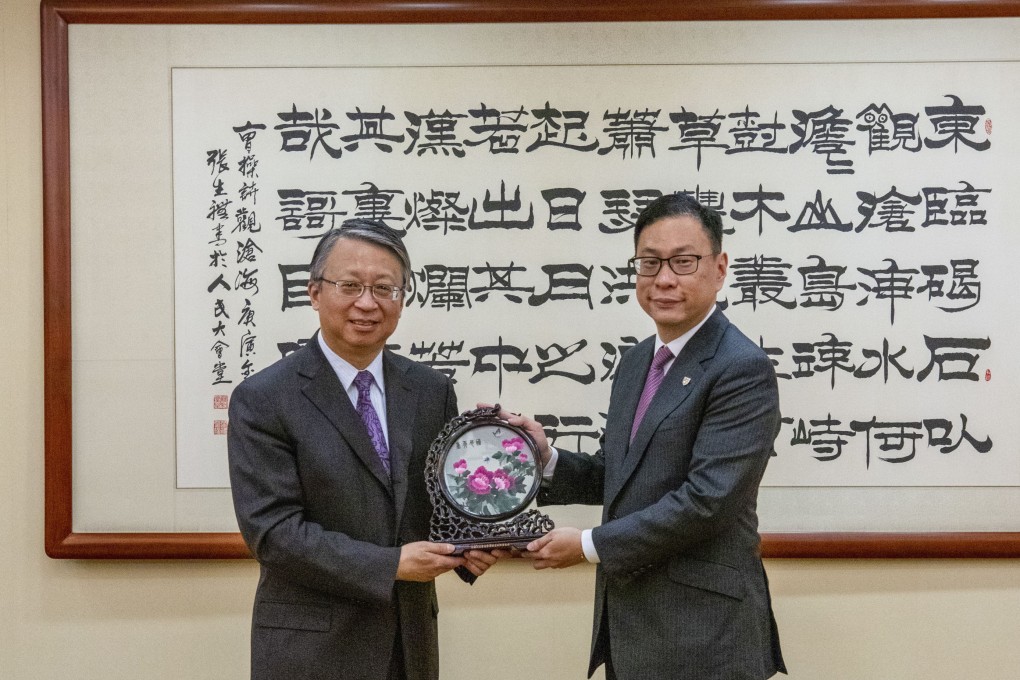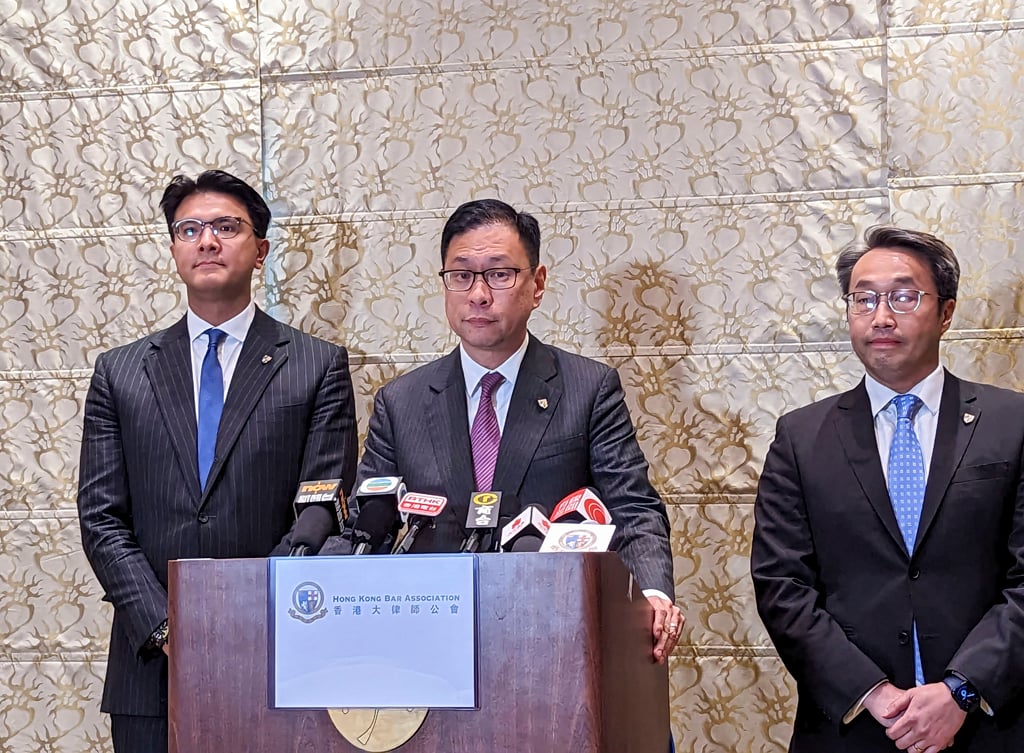Human rights in Hong Kong must be preserved under city’s own national security law, Bar Association group tells top Beijing legal official
- Delegation meets Shen Chunyao, chairman of legislative affairs committee of country’s top legislative body
- Five-day visit, led by Bar Association chairman Victor Dawes, marks thaw in relations between body and Beijing

Human rights must be protected as Hong Kong prepares to enact its own national security law, the city’s Bar Association has said on an ice-breaking trip to Beijing after such exchanges were frozen amid a fallout over the imposition of the legislation.
The association told a top Beijing legal official on Wednesday that the local version of a national security law should take into account Hong Kong’s special circumstances.
Chairman Victor Dawes, SC, said the meeting with Shen Chunyao, the chairman of the legislative affairs committee and the Basic Law committee of the National People’s Congress Standing Committee, the country’s top legislative body, was “a candid exchange”.
Dawes added he had given a “complete picture rather than giving a one-sided picture” on controversial subjects, including concerns over Article 23 of the Basic Law, the city’s mini-constitution, which requires Hong Kong to pass its own legislation to prohibit acts of treason, secession, sedition and subversion.

The legislation must also outlaw the theft of state secrets, as well as ban foreign political organisations or bodies from conducting political activities in the city and forbid Hong Kong political organisations or bodies from establishing ties with foreign counterparts.